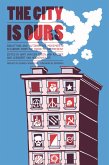Don't Mourn, Balkanize! is the first book written from the radical left perspective on the topic of Yugoslav space after the dismantling of the country. In this collection of essays, commentaries, and interviews, written between 2002 and 2010, Andrej Grubacic speaks about the politics of balkanization-about the trial of Slobodan Milosevic, the assassination of Prime Minister Zoran Djindjic, neoliberal structural adjustment, humanitarian intervention, supervised independence of Kosovo, occupation of Bosnia, and other episodes of Power which he situates in the long historical context of colonialism, conquest, and intervention.
But he also tells the story of the balkanization of politics, of the Balkans seen from below. A space of bogumils-those medieval heretics who fought against Crusades and churches-and a place of anti-Ottoman resistance; a home to hajduks and klefti, pirates and rebels; a refuge of feminists and socialists, of antifascists and partisans; of new social movements of occupied and recovered factories; a place of dreamers of all sorts struggling both against provincial "peninsularity" as well as against occupations, foreign interventions and that process which is now, in a strange inversion of history, often described by that fashionable term, "balkanization."
For Grubacic, political activist and radical sociologist, Yugoslavia was never just a country-it was an idea. Like the Balkans itself, it was a project of inter-ethnic co-existence, a trans-ethnic and pluricultural space of many diverse worlds. Political ideas of inter-ethnic cooperation and mutual aid as we had known them in Yugoslavia were destroyed by the beginning of the 1990s-disappeared in the combined madness of ethno-nationalist hysteria and humanitarian imperialism. This remarkable collection chronicles political experiences of the author who is himself a Yugoslav, a man without a country; but also, as an anarchist, a man without a state. This book is an important reading for those on the Left who are struggling to understand the intertwined legacy of inter-ethnic conflict and inter-ethnic solidarity in contemporary, post-Yugoslav history.
But he also tells the story of the balkanization of politics, of the Balkans seen from below. A space of bogumils-those medieval heretics who fought against Crusades and churches-and a place of anti-Ottoman resistance; a home to hajduks and klefti, pirates and rebels; a refuge of feminists and socialists, of antifascists and partisans; of new social movements of occupied and recovered factories; a place of dreamers of all sorts struggling both against provincial "peninsularity" as well as against occupations, foreign interventions and that process which is now, in a strange inversion of history, often described by that fashionable term, "balkanization."
For Grubacic, political activist and radical sociologist, Yugoslavia was never just a country-it was an idea. Like the Balkans itself, it was a project of inter-ethnic co-existence, a trans-ethnic and pluricultural space of many diverse worlds. Political ideas of inter-ethnic cooperation and mutual aid as we had known them in Yugoslavia were destroyed by the beginning of the 1990s-disappeared in the combined madness of ethno-nationalist hysteria and humanitarian imperialism. This remarkable collection chronicles political experiences of the author who is himself a Yugoslav, a man without a country; but also, as an anarchist, a man without a state. This book is an important reading for those on the Left who are struggling to understand the intertwined legacy of inter-ethnic conflict and inter-ethnic solidarity in contemporary, post-Yugoslav history.
Dieser Download kann aus rechtlichen Gründen nur mit Rechnungsadresse in A, D ausgeliefert werden.









